My cheese and chive scones are a great tasting savoury scone recipe. These delicious scones are soft and light in the centre with a lovely crust and bubbly cheese topping. Enjoy warm, straight from the oven.
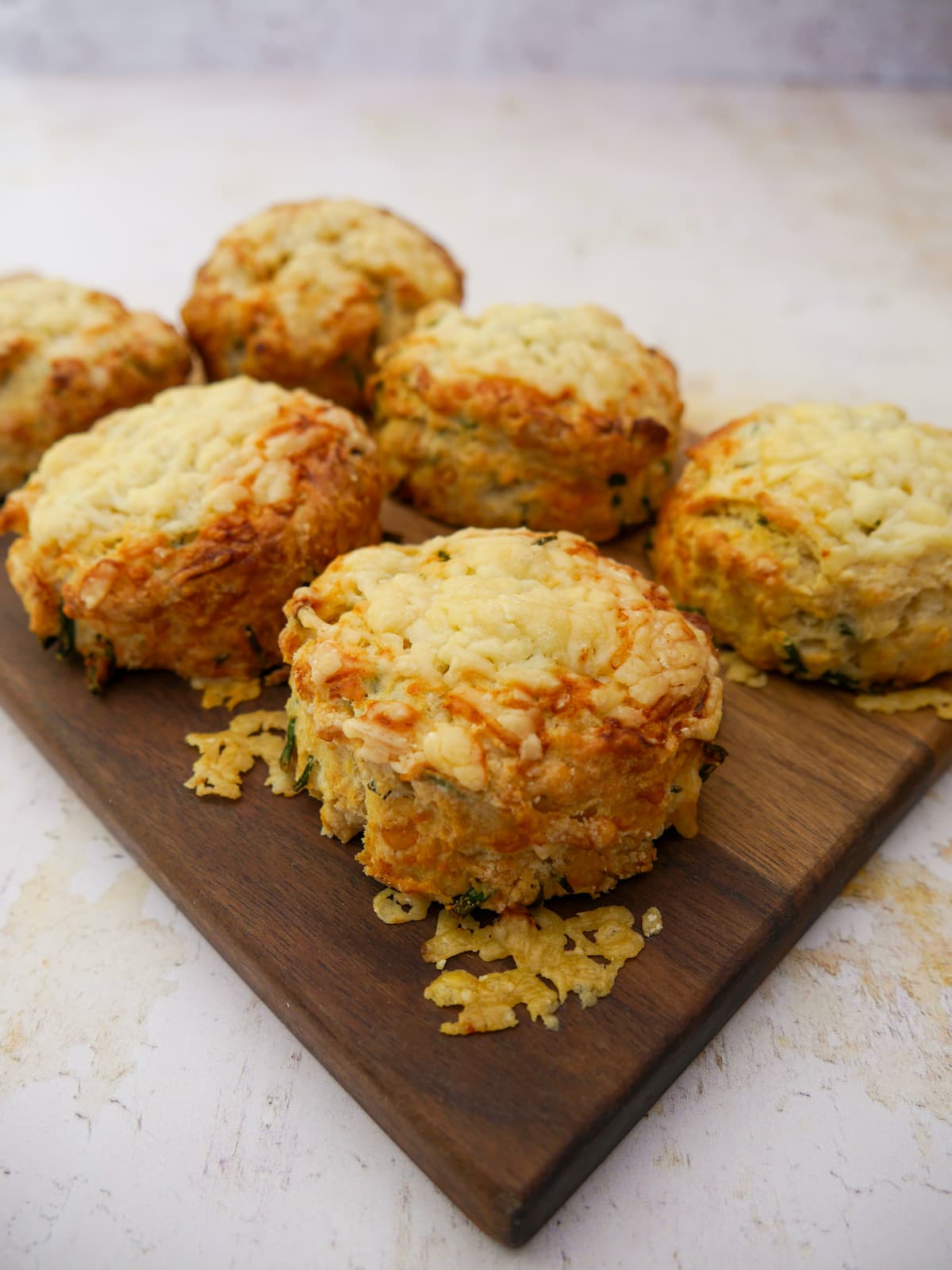
I bake cheese and chive scones with buttermilk, in fact I always use buttermilk when baking scones. The acidity in the buttermilk makes for a softer crumb and lighter scones.
I never add sugar to savoury scone dough. Instead the flavour comes from a good crumbly vintage cheddar, some freshly chopped chives, and just a touch of English mustard powder.
I love serving savoury cheese scones, straight from the oven with some salted butter. However, they are ideal to serve with a bowl of homemade soup on a cold day.
Why you'll love this recipe
- This is a twist on my Classic Buttermilk Scone recipe. I show you how easy it is to make a savoury scone without the addition of sugar.
- Following a few basic guidelines, this recipe is fail-safe and it turns out great tasting, light and airy scones, time after time.
- This recipe can be easily doubled or halved to make a larger or smaller batch of scones.
- Get ahead as scone dough can be prepared the night before and stored in the fridge. Next morning roll the dough, cut the scones and bake!
Recipe ingredients
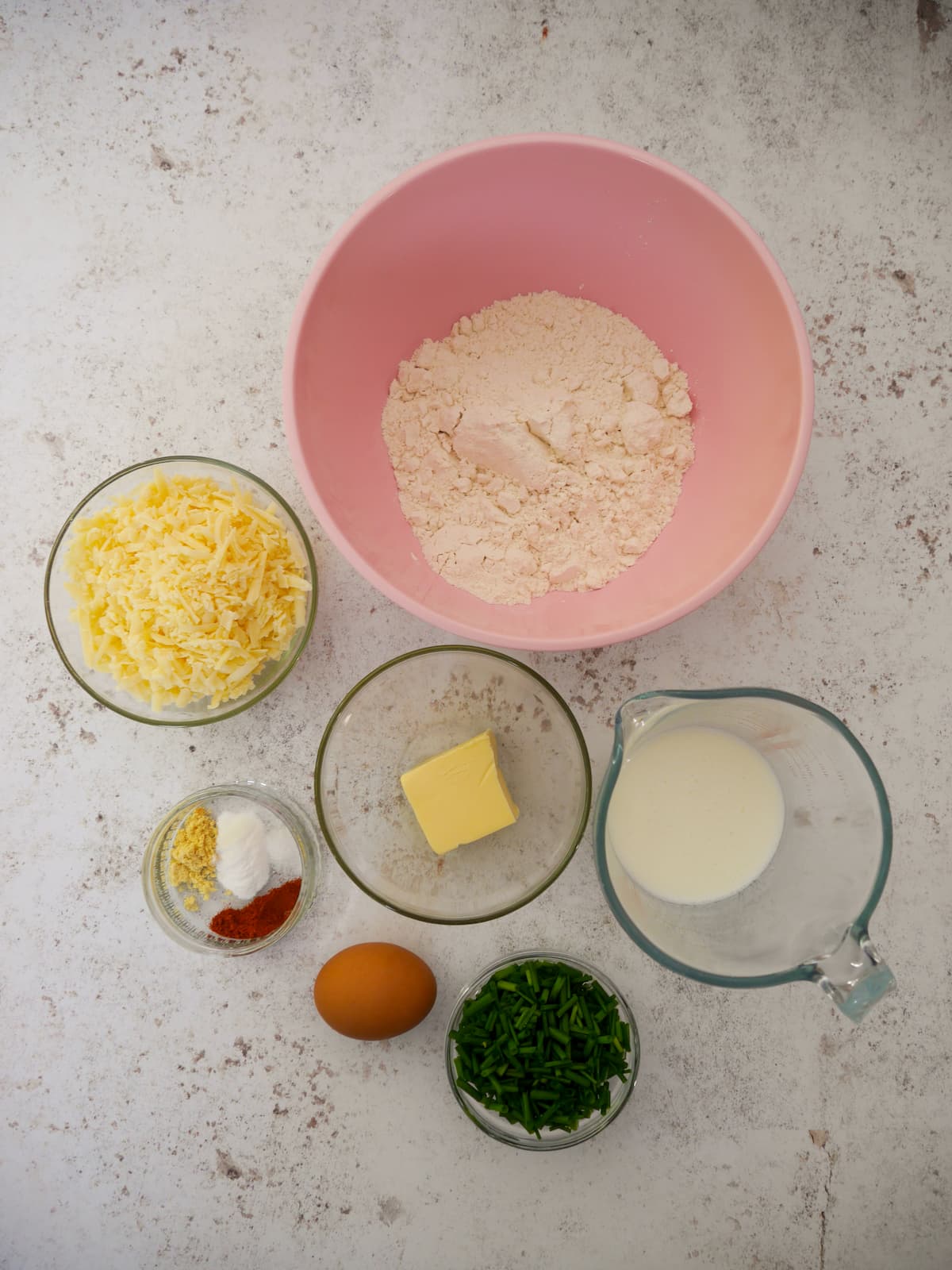
- Flour: I use self raising flour to make all scones.
- Raising agent: When adding in extra ingredients to the scone dough I like to add a teaspoon of baking powder to help the scones rise.
- Seasoning: I use a combination of sea salt, cayenne pepper and English mustard powder to season and flavour the scones.
- Butter: I use unsalted butter, cold from the fridge and cubed. If you use salted butter, cut down on the salt in the flour.
- Cheese: I use a strong flavoured extra mature or vintage cheddar cheese, in both the scone dough and to top the scone. You can use whatever cheese you have to hand, but its best to use a sharp crumbly cheese, rather than one that is too greasy/oily.
- Chives: I grow chives in tubs in my garden, they have a great mild onion flavour. They are also readily available to buy fresh from most larger supermarkets.
- Buttermilk: I like to use buttermilk to make scones, but you can use whole milk if you prefer.
- Egg: I use 1 medium sized egg to make the scone dough.
How to make Cheese & Chive Scones
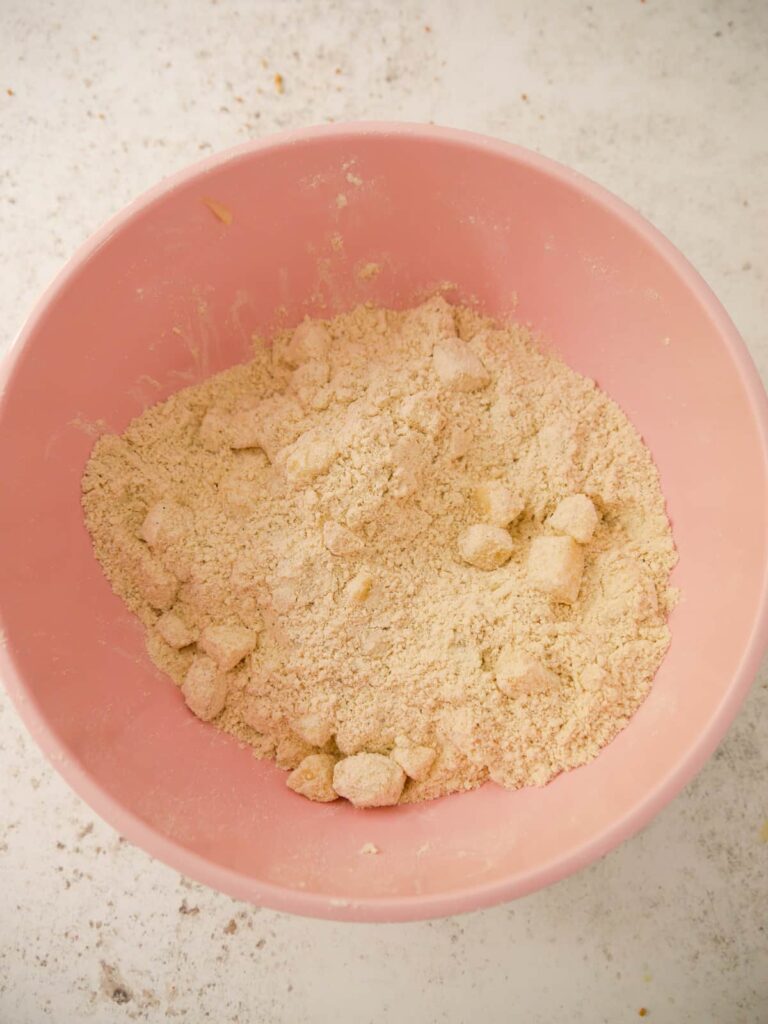
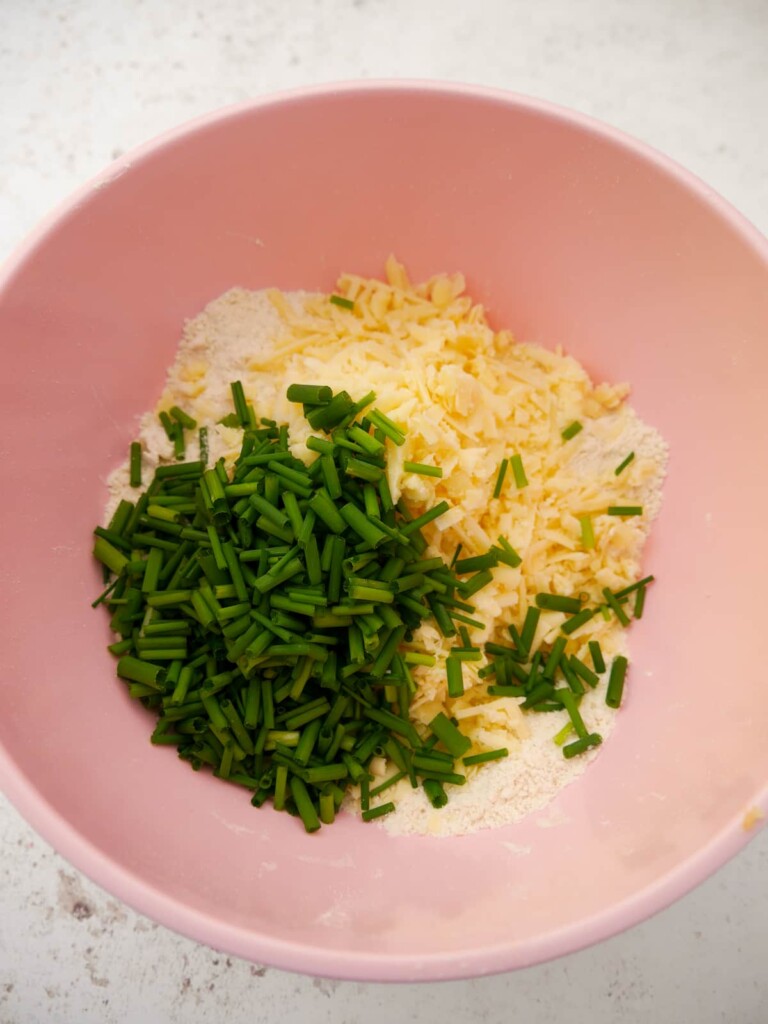
- Preheat oven to 220C/200CFan/430F.
- Place the flour, salt, cayenne pepper and mustard powder into a large mixing bowl and give it a mix to combine.
- Add the cubed butter and lightly rub through your finger tips until the butter has been combined and the mixture resembles breadcrumbs.
- Stir through 100g (3.5 oz) of the grated cheese and the chopped chives.
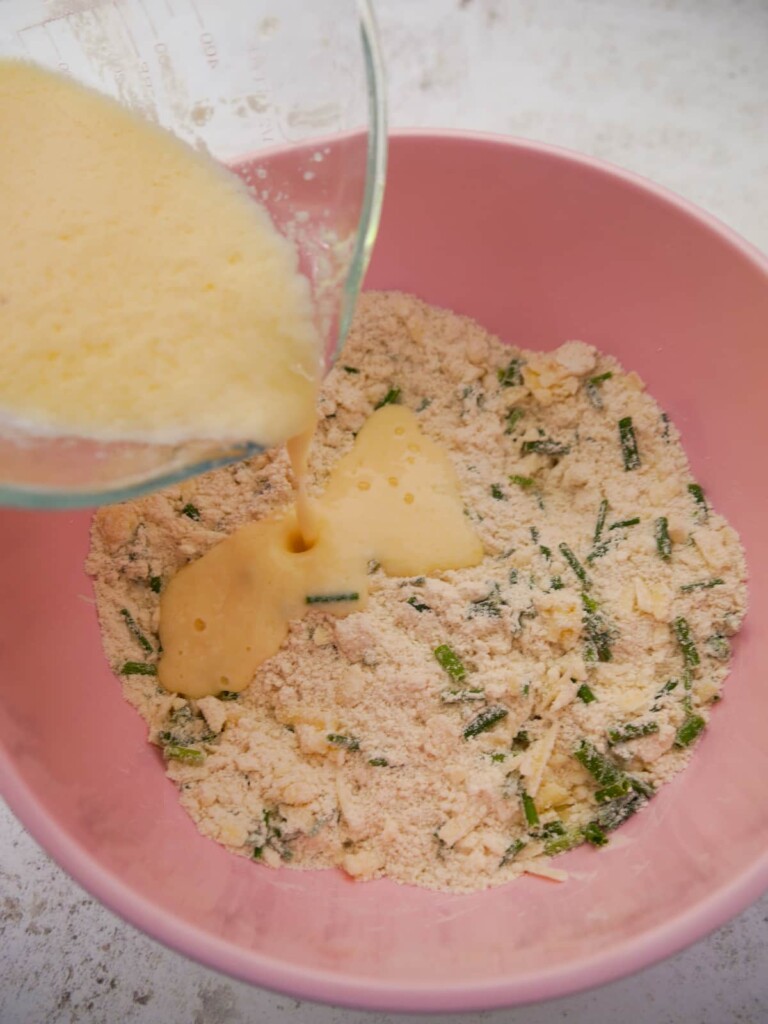
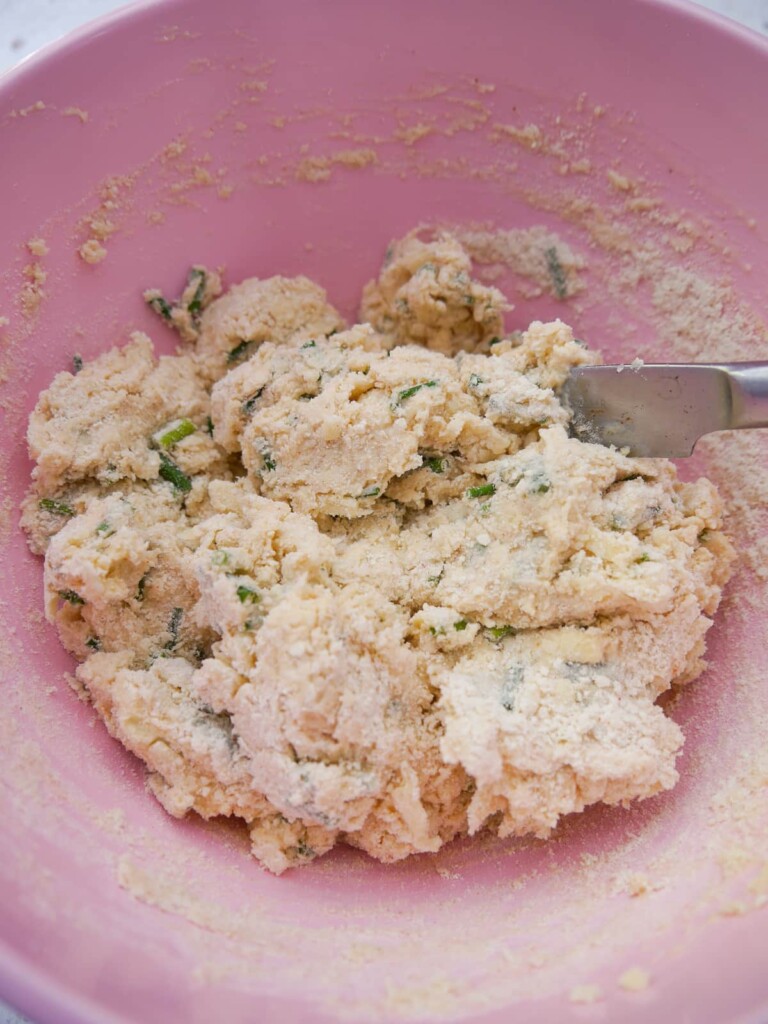
- In a separate bowl, whisk together the buttermilk and egg. Add the buttermilk mixture to the flour mixture and using your hands, or a knife gently bring it together.
- If the dough feels too dry, you can add a little extra buttermilk to the mixture.
- It's important not to overwork the scone mixture, otherwise you will have a heavy, dense scone.
TOP TIP: It's important not to overwork the scone mixture, otherwise you will have a heavy, dense scone.
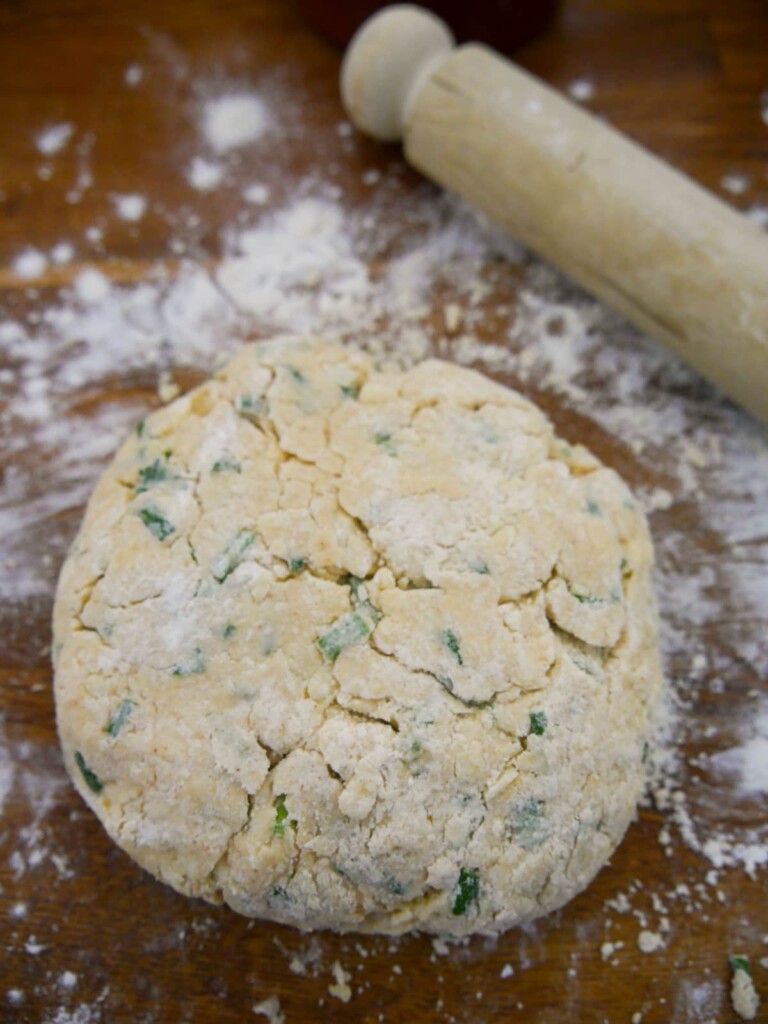
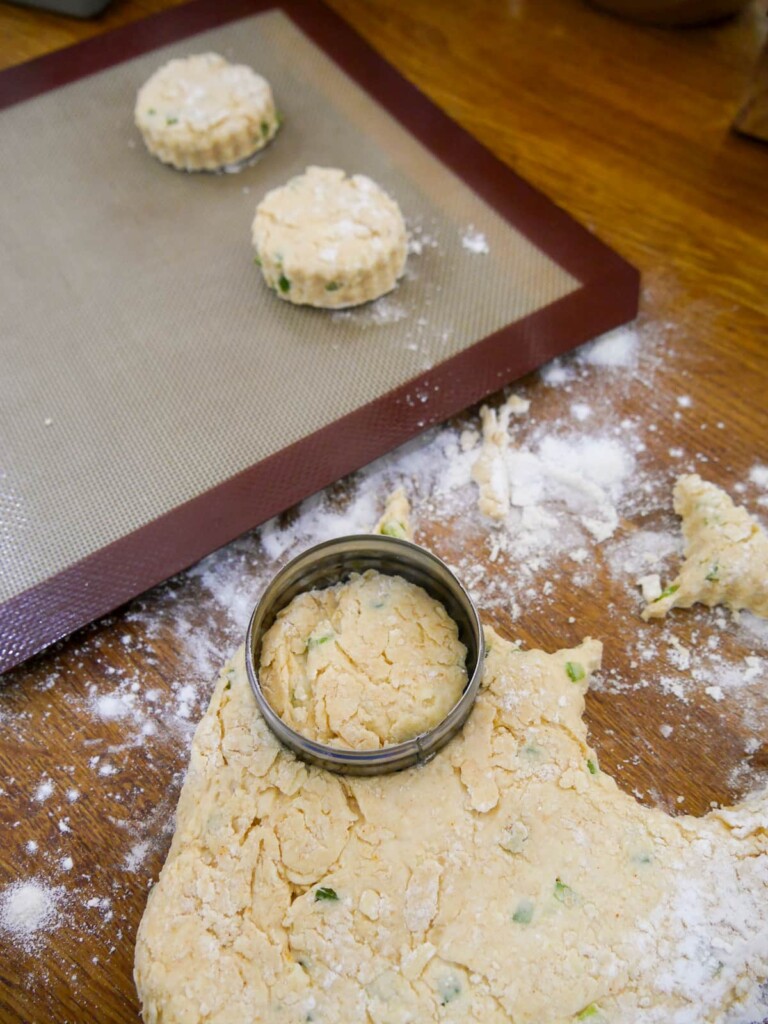
- Bring the scone mixture into a ball, without needing, and turn onto a lightly floured surface. Roll gently until 3cm (1 ¼-inch) thick and cut into rounds using a 6.5cm (2 ½-inch) diameter pastry cutter.
- When cutting scones, push the cutter straight down without twisting it about. If you twist the cutter your scones won't rise as well.
- Place the scones well apart on a lined baking sheet.
TOP TIP: When cutting scones, push the cutter straight down without twisting it about. If you twist the cutter your scones won't rise as well.
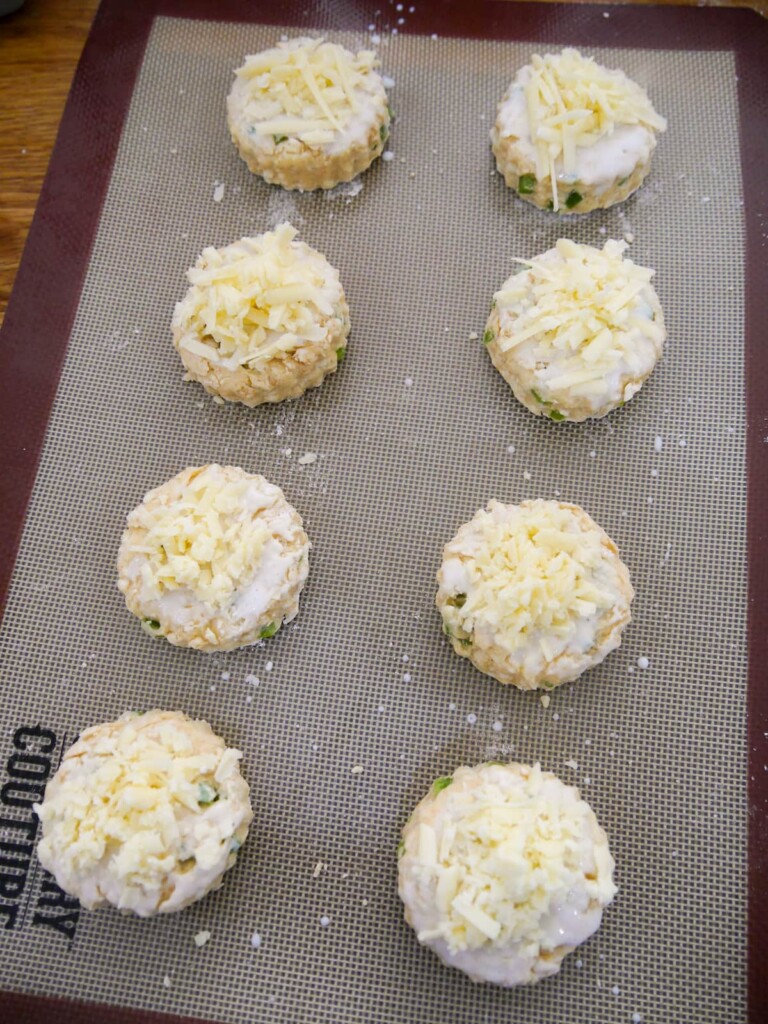
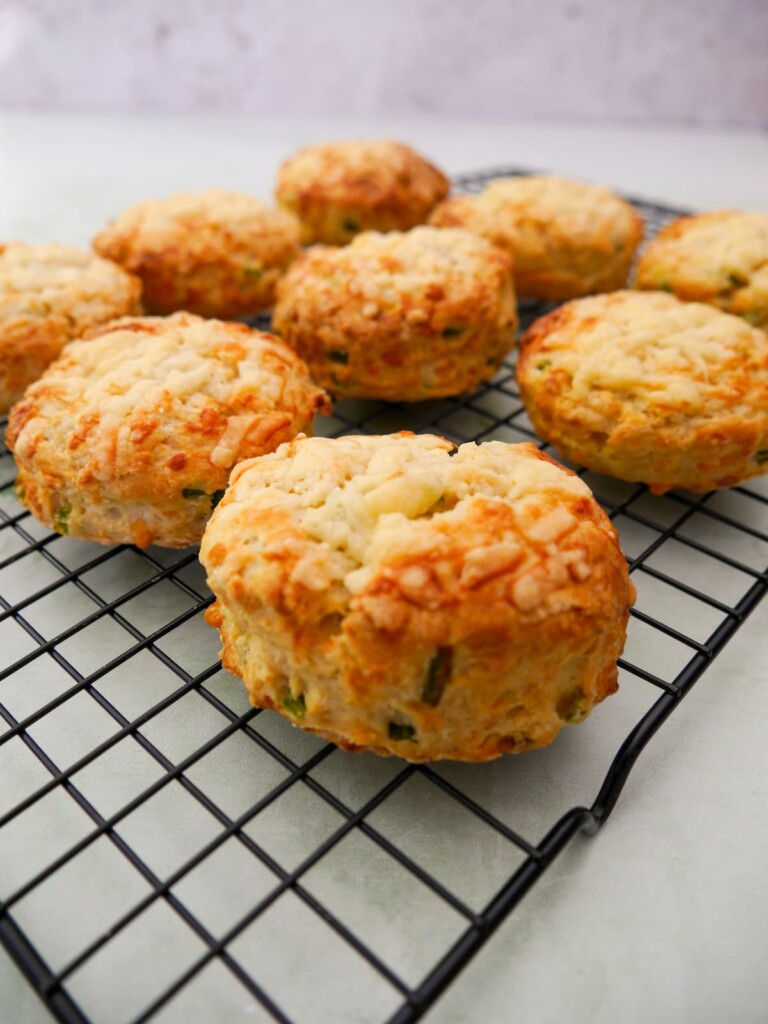
- Brush the top of each scone with a beaten egg or milk wash. Sprinkle the top of each scone with some of the remaining cheese.
- Place on the middle shelf of the oven, and bake for 16-18 minutes until the top is golden and the cheese bubbles.
- Remove from the oven and set the scones onto a wire rack to cool for 10 minutes and serve warm.
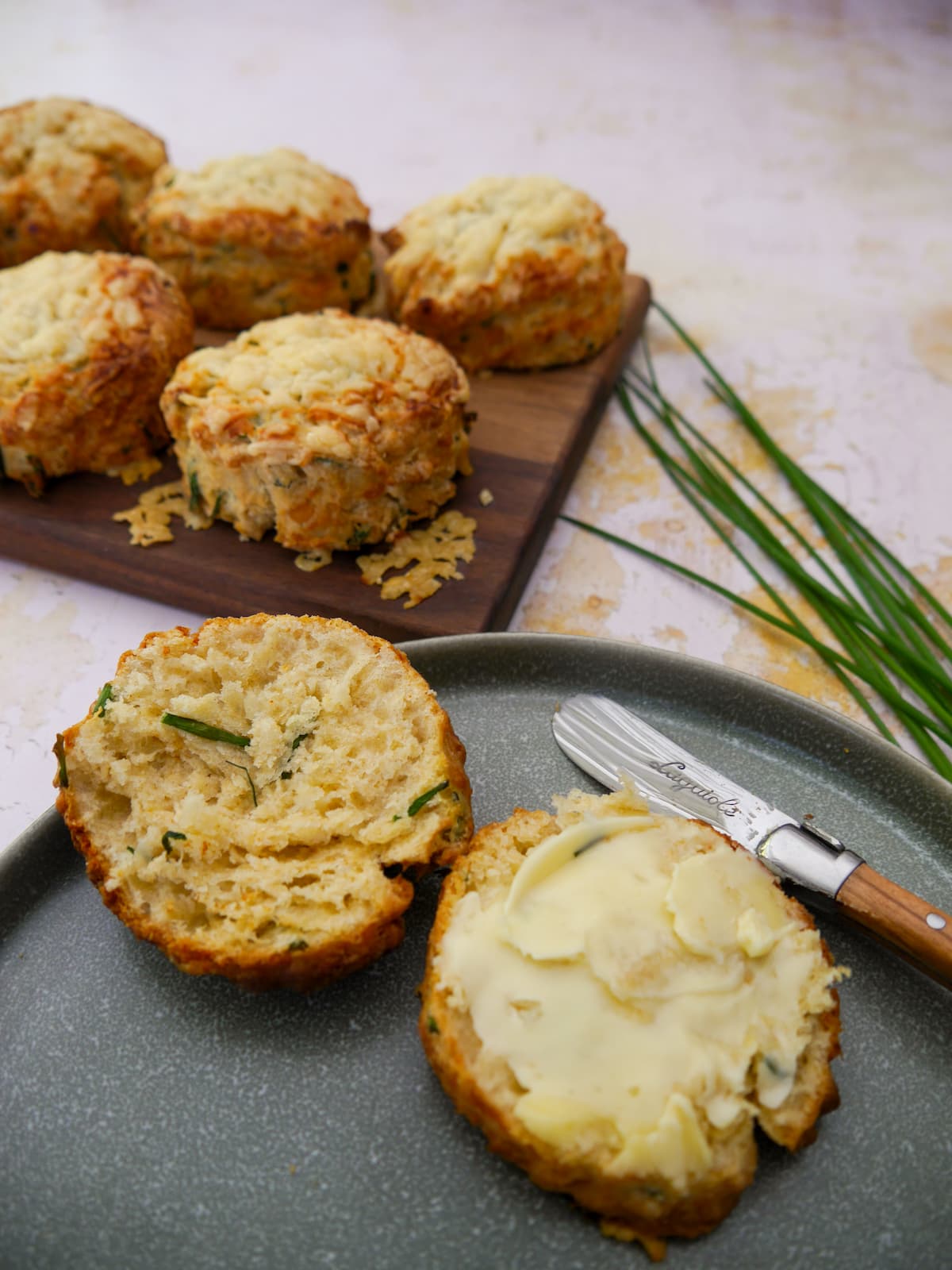
Recipe variations
Cheese scones are easily adapted and you can add in other flavours. The trick is not to overload your scone dough with too many extra ingredients or they won't rise. Here are some ideas:
- Cheese - cheddar, parmesan, blue cheese, feta, crumbly goat cheese
- Fresh herbs - chives, parsley, basil, thyme
- Meat - crispy bacon pieces, or thinly sliced chorizo or salami
- Tomatoes - sun-dried or sunblush tomatoes finely diced
- Spices/seasoning - smoked paprika, chili powder, chili flakes, dried oregano, Italian seasoning
Serving suggestions
I like to serve the scones straight from the oven with some salted butter and quite often some marmite, pickle or some of my Spicy Sweet Chilli Jam.
However, if you want something a little extra, try a savoury alternative to a cream tea. Swap the clotted cream for some cream cheese, and the jam for onion jam, savoury chutney or pickle, try my Pear & Walnut Chutney, or Spiced Pear & Apple Chutney.
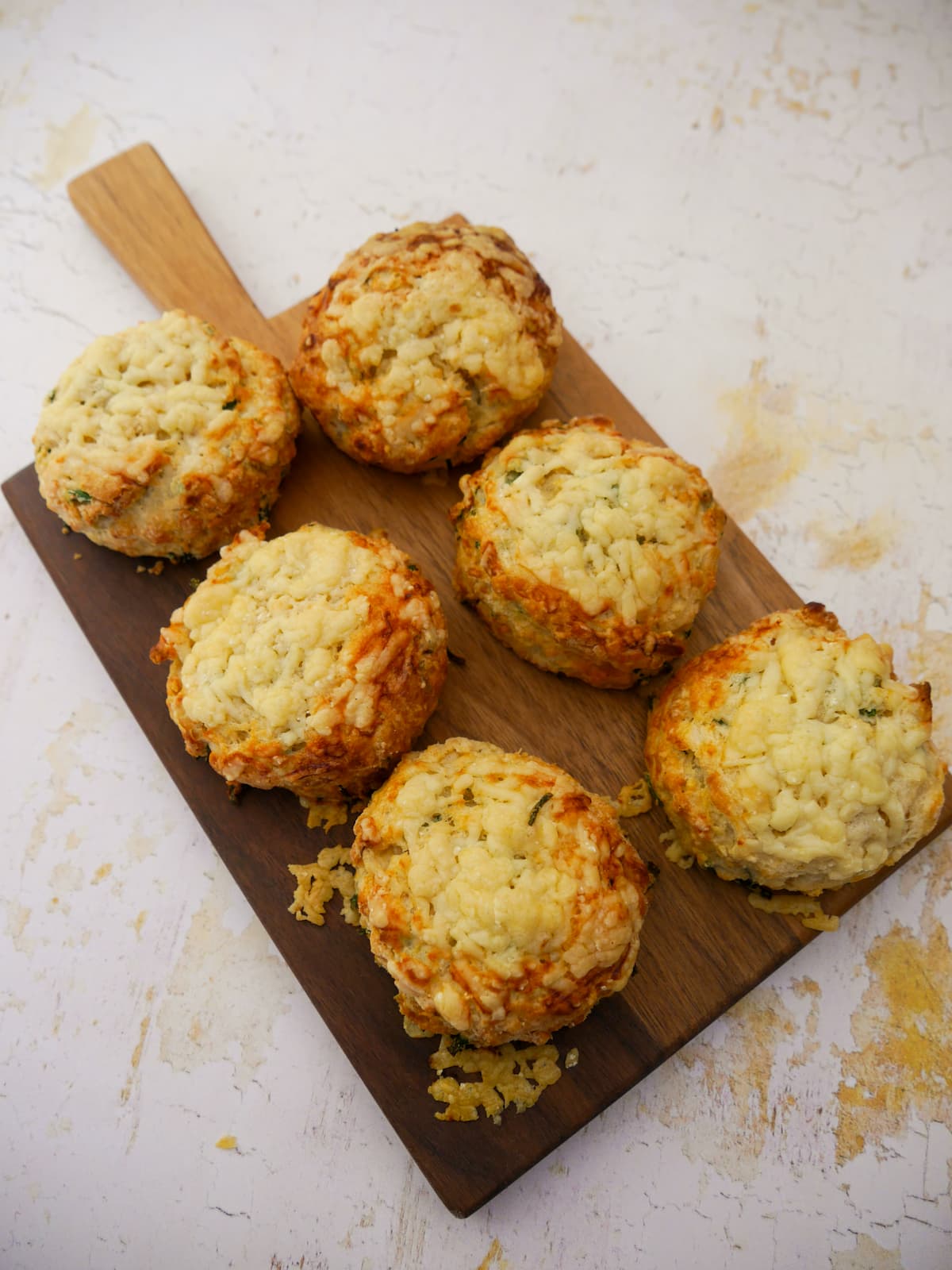
How to store scones
Scones are best enjoyed the day they are baked. However, you can store leftovers.
Countertop: Store for 1-2 days in an airtight container on the counter-top, just warm them up a little before serving.
Freezer: You can also freeze cheese scones, just allow the scones to cool then place in an airtight container in the freezer for up to 3 months. When ready to enjoy, defrost and I recommend warming up a little in a hot oven.
Useful hints and tips
- Use a strong flavored, crumbly cheese like a sharp vintage cheddar. Don't be tempted to use an oily cheese or you'll end up with heavy, greasy scones.
- Use cold butter straight from the fridge cut into cubes. Cold butter is easier to rub and work into the flour and will result is a lovely flaky fluffy textured scone. If you use warm butter you risk it melting in the oven before the scone has baked.
- When glazing the scones before baking with an egg or milk wash, take care not to allow it to drip down the sides or the scone may not rise.
- Vegetarian: to make vegetarian cheese scones, ensure you use a suitable vegetarian cheese in place of the vintage cheddar.
- Allergy advice: these scones are soya free and nut free. For comprehensive and detailed allergy advice go to Allergy UK.
FAQs
First, ensure you use fridge cold butter to rub into the flour. Cold butter forms fat pockets in the dough which melt and steam when the scones bake, and help them to rise. Secondly, do not be heavy handed when bringing together the scone dough. Use a light touch and don't knead or overwork the dough or your scones will be tough.
Firstly I like to use a cheese that has a strong cheesy flavour. I usually opt for a vintage or extra mature cheddar cheese or Parmesan cheese. You also want a dryer crumbly cheese, rather than an an oily cheese which can make the scones greasy.
Yes, once made, scone dough can be stored in a covered bowl in the refrigerator overnight. Next day all you need to do is shape the dough, cut the scone and bake.
Pin the recipe
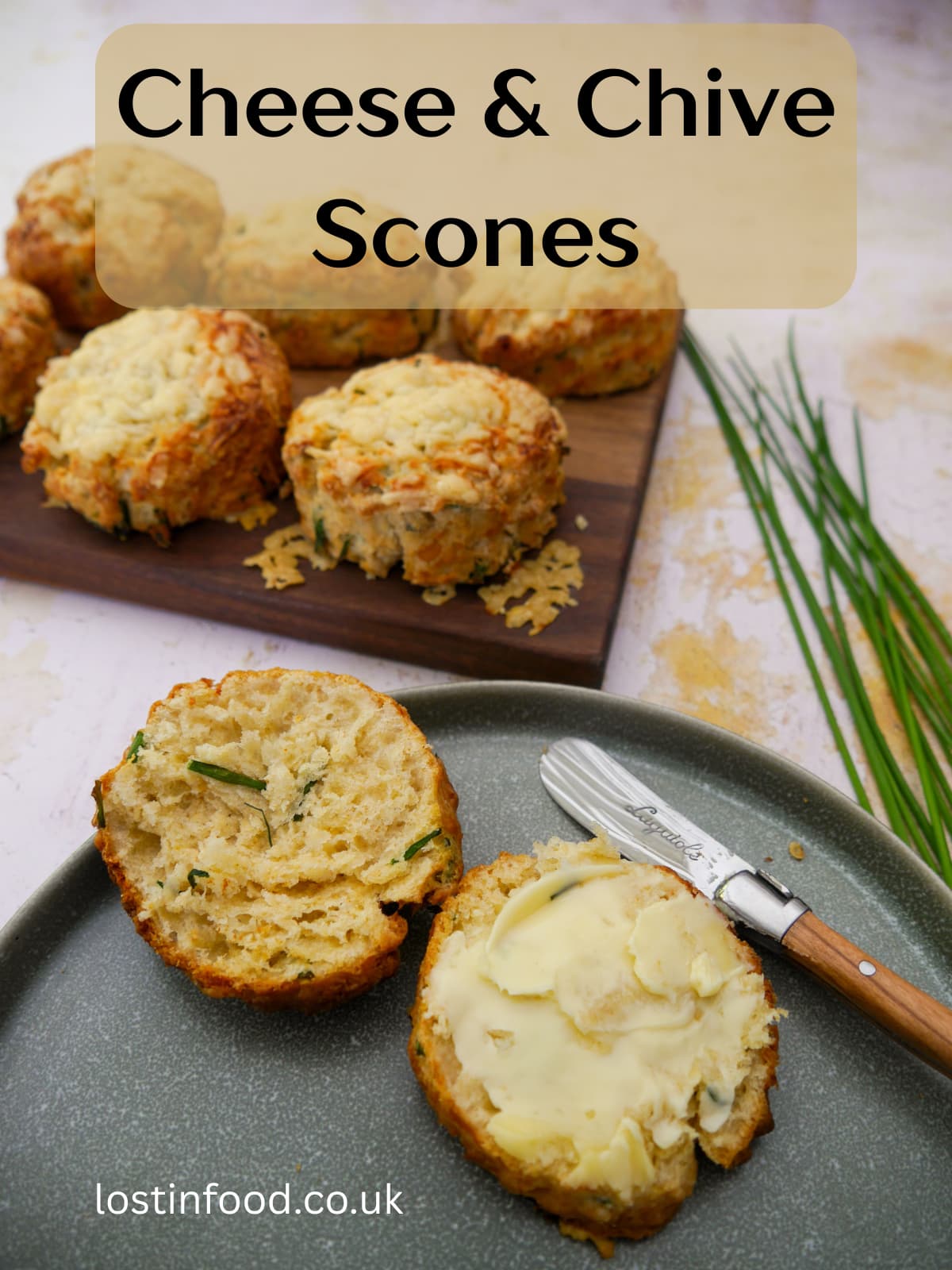
Additional recipe suggestions
If you like this recipe then try some of my other savoury bakes:
- Buttermilk Cheese Scones
- Cheese & Jalapeno Scones
- Cheese Bacon & Tomato Scones
- Carrot & Courgette Breakfast Muffins
- Courgette & Cheese Bread with Walnuts
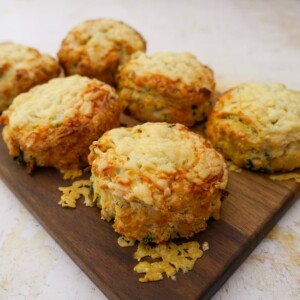
Cheese & Chive Scones with Buttermilk Recipe
Equipment
- large mixing bowl
- Measuring jug
- measuring spoons
- Baking sheet
- Silicone liner or baking parchment
- Rolling Pin
- cookie cutter 6.5cm (2 ½-inch diameter)
Ingredients
- 250 g self raising flour
- 1 teaspoon baking powder
- large pinch salt
- ½ teaspoon cayenne pepper
- ½ teaspoon English mustard powder
- 50 g unsalted butter (cold from fridge and cubed)
- 150 g extra mature cheddar (grated, reserve 25g for topping)
- 8 tablespoon chopped chives
- 100 ml buttermilk
- 1 medium egg
Instructions
- Preheat oven to 220C/200CFan/430F.
- Place the flour, salt, cayenne pepper and mustard powder into a large mixing bowl and give it a mix to combine.
- Add the cubed butter and lightly rub through your finger tips until the butter has been combined and the mixture resembles breadcrumbs.
- Stir through 125g (4.4 oz) of the grated cheese and the chopped chives.
- In a separate bowl, whisk together the buttermilk and egg. Add the buttermilk mixture to the flour mixture and using your hands, or a knife gently bring it together.
- If the dough feels too dry, you can add a little extra buttermilk to the mixture.
- It's important not to overwork the scone mixture, otherwise you will have a heavy, dense scone.
- Bring the scone mixture into a ball, without needing, and turn onto a lightly floured surface. Roll gently until 3cm (1 ¼-inch) thick and cut into rounds using a 6.5cm (2 ½-inch) diameter pastry cutter.
- When cutting scones, push the cutter straight down without twisting it about. If you twist the cutter your scones won't rise as well.
- Place the scones well apart on a lined baking sheet.
- Brush the top of each scone with a beaten egg or milk wash. Sprinkle the top of each scone with some of the remaining cheese.
- Place on the middle shelf of the oven, and bake for 16-18 minutes until the top is golden and the cheese bubbles.
- Remove from the oven and set the scones onto a wire rack to cool for 10 minutes and serve warm.
Notes
• Please note that the nutrition information provided above is approximate and meant as a guideline only •

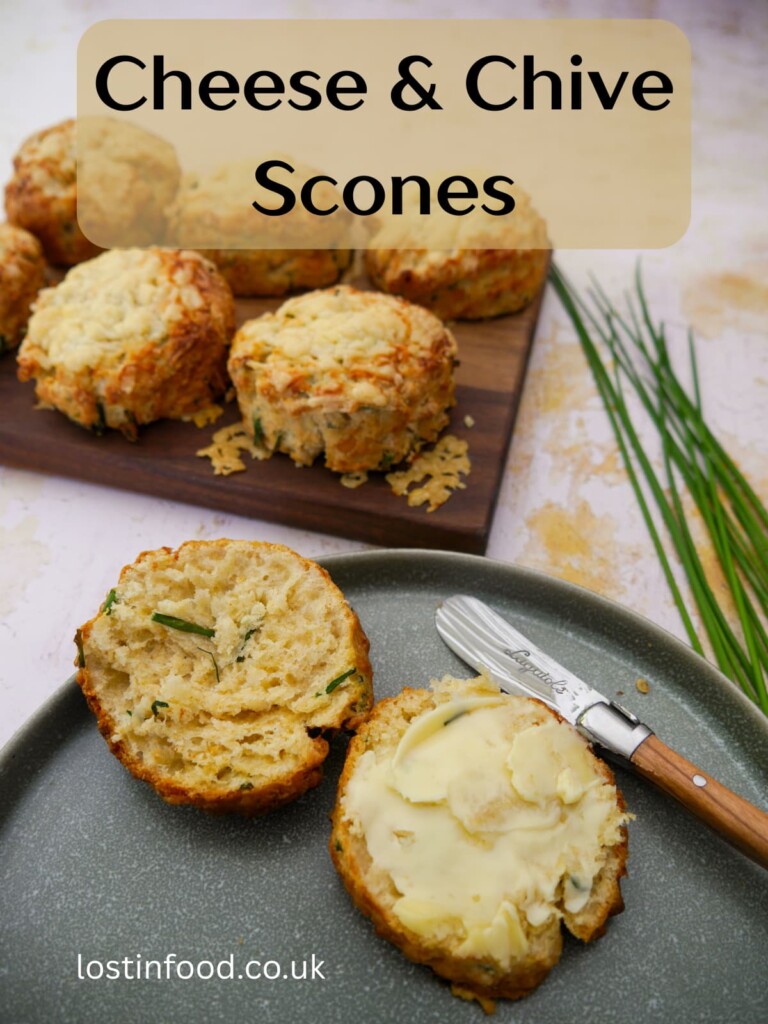
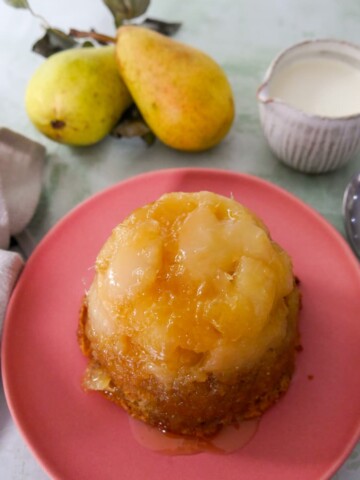
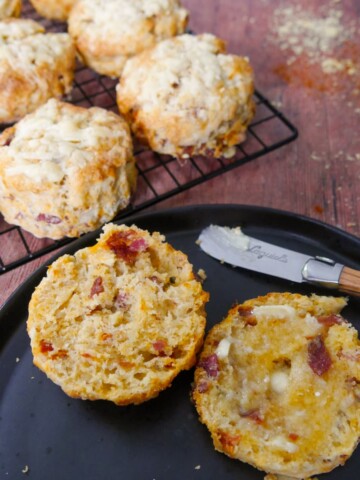
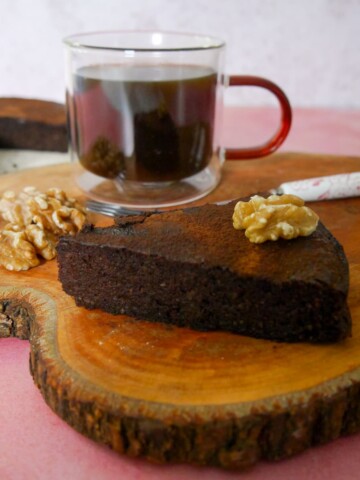
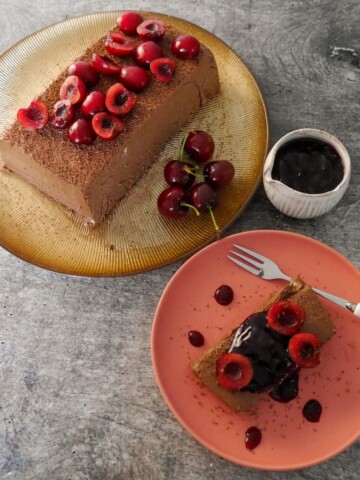
Chloe says
OOoh yes, the chives were a great upgrade to a cheese scone, loved these!
Lesley says
Thank you Chloe, I'm glad you enjoyed these savoury scones.
Dave says
These were great, we had them with some soup and they went down a treat.
Lesley says
Thank you Dave, I often eat these scones with a bowl of soup, they are the perfect accompaniment.